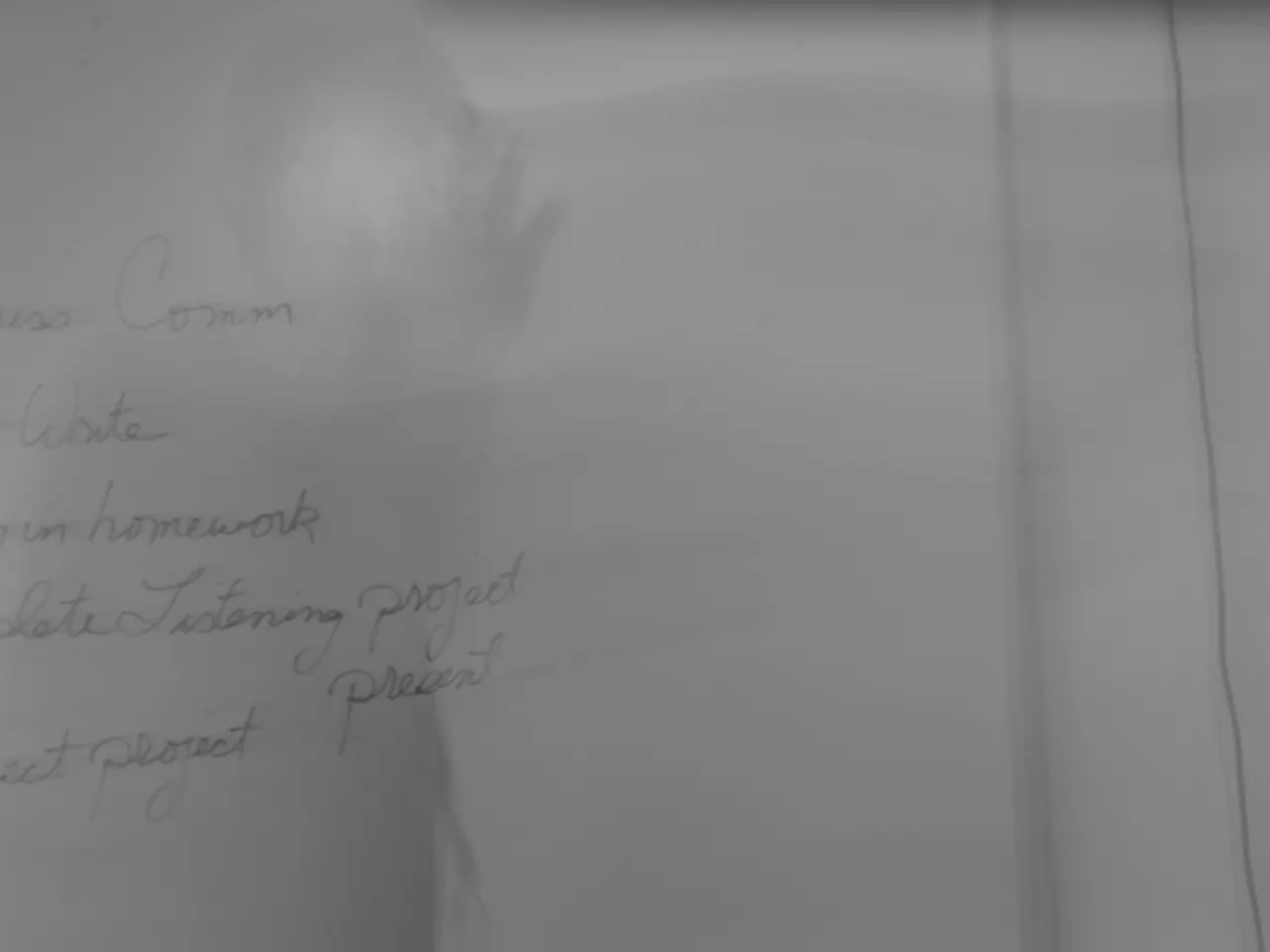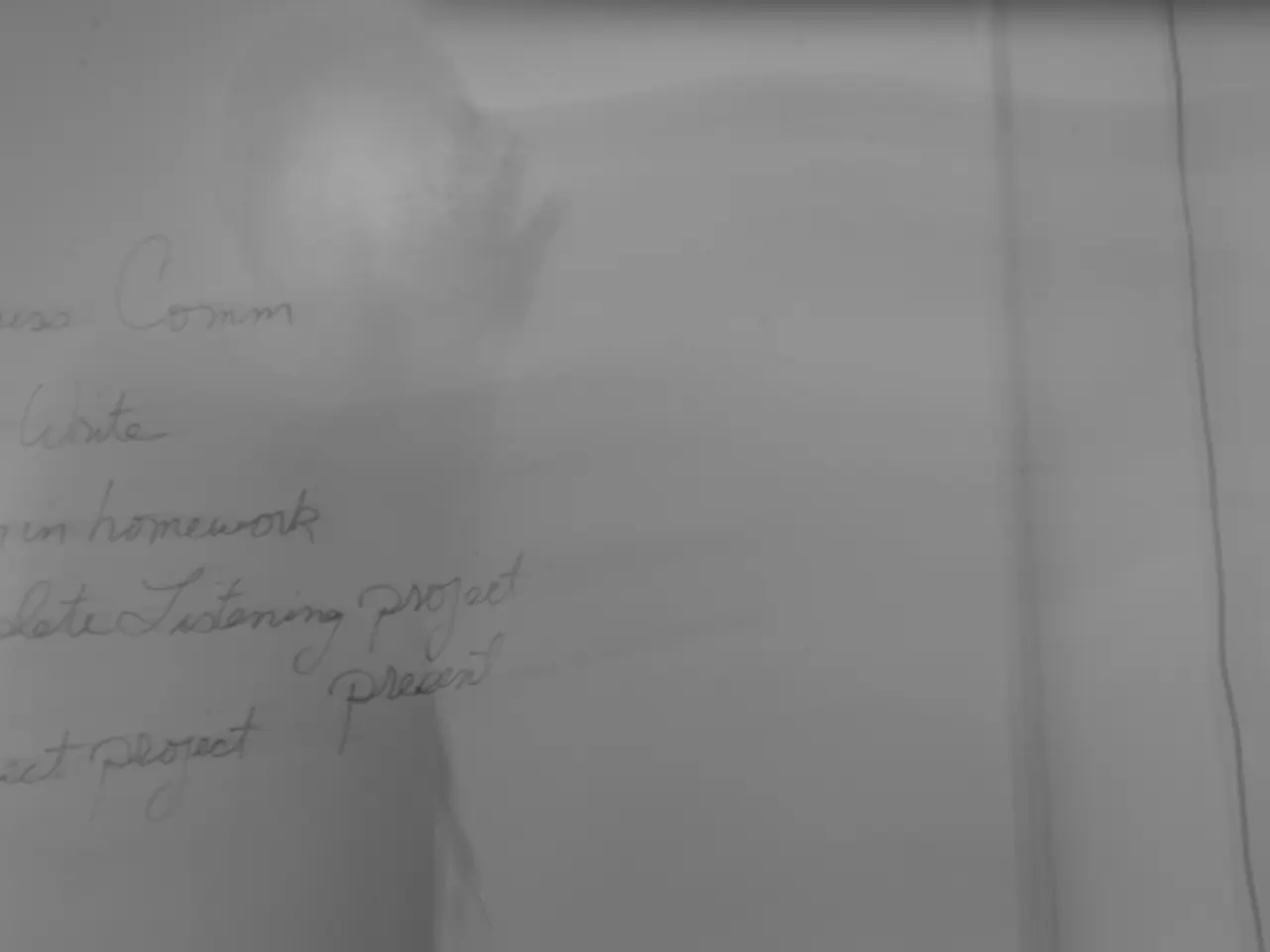"Is the "CumCum" suspected of concealing a three-billion-euro tax evasion scandal?"
In the ongoing battle against tax evasion, Macron's 2018 promise stands firm. After a whopping €33 billion in tax revenue was lost due to tax fraud over two decades, Macron vowed to crack down on the CumCum scheme.
Years later, in 2024, Parliament believed they had sealed the deal, barraging the complex loophole through which banks could continue to dodge taxes. However, as accused by Jean-François Husson, the Rapporteur General of the finance commission, the government's law implementations have kept the door ajar for banks to keep evading taxes.
A First-Class Fraud Game
When foreign investors receive dividends from French companies, they are supposed to pay taxes on these funds. But, a clever loophole allows them to sidestep this tax bill. Just before the dividends are paid, the investor lends their shares to a French bank, who then receives the dividends. The bank is not taxed; instead, it returns the shares to the investor after taking a small commission, leaving the investor tax-free.
While lending shares is allowed in France, doing so at dividend payment time to avoid taxes is illegal. We dug up a broker who specializes in this elaborate financial setup, acting as a go-between for banks and investors. When confronted, their response was blunt: "Everyone is picking at it. There’s enough to go around for everyone to take their share." - no doubt about it, they see it as a fraud.
A Law everyone Agrees on and then Changes
By the end of 2024, the Senate unanimously approved a text to put an end to this fraud. Aside from share lending, the final beneficiary of the dividends should pay taxes. However, the French Banking Federation (FBF) petitioned Bercy to establish exceptions to this rule.
In a letter to the DGFiP on February 17, the FBF asked for Bercy to reconsider, raising concerns about imposing constraints on banks during their stock transactions. Despite warnings that such a move could tarnish the government's reputation and face severe political consequences, Eric Lombard, Minister of the Economy, went ahead and made changes in April.
According to these updates, if shares are traded on a regulated market, banks are not required to identify the ultimate beneficiary of those shares. In layman's terms, this means that banks can choose to ignore who is truly behind the shares... and not apply the tax.
A "Sabotage" Denounced by an LR Senator
Jean-François Husson denounced the government's move as a "sabotage" and an "unacceptable circumvention" of the legislature's will. On June 19, Husson showed up unannounced at the Ministry of the Economy, citing his right of on-site and on-pieces control.
The government's response? According to close associates, Bercy intervened to "clarify" the law. It seems the Prime Minister was left in the dark, stating during a session with deputies, "I must say, I didn't know the text that Mr. General Rapporteur Husson had uncovered."
The ensuing controversy is reminiscent of video games with multiple winners, leaving the French taxpayers as the ultimate losers, not picking up their fair share of the bill.
Sources:
- "CumCum": The dividend scandal explained simply
- "CumCum" Frauds: The Senate votes in November 2024 to end the fraudulent dividend arbitrage practice
- Clarifications provided by the Ministry of Economy in the Official Bulletin of Public Finances (Bofip)**
- "CumCum" Frauds: The Senate's General Rapporteur to Bercy to demand answers
Enrichment Data:
The CumCum tax evasion scheme in France continues to make headlines, with investigations ongoing as of June 2025. CumCum and its partner scheme, CumEx, employ intricate maneuvers such as dividend stripping to obscure the true owners of shares, enabling numerous parties to lay claim to illegitimate tax rebates[1][2][3].
Current Status
- Ongoing Prosecutions: Authorities, including the National Financial Prosecutor (PNF), have been scouring through records of major banks, including Société Générale and BNP Paribas, since 2024. The focus of these investigations is on allegations that these banks facilitated tax evasion for their clients through intricate offshore arrangements and structured finance products[2][4]
- Scale and Impact: Estimates suggest that the ongoing CumCum dispute involves up to €5 billion in unpaid taxes and fines, with liability estimates doubling since 2023 as more extensive fraud comes to light. The Federation Bancaire Française is even suing the government, contending that tax rules are too vague[1][3]
- Recent Lawsuits: As recent as June 26, 2025, police raided Société Générale offices as part of the ongoing CumCum investigation. This investigation involves up to 80 investigators and multiple magistrates, both in France and abroad[2][4]
Recent Legal Changes
- New Tax Measures: The 2025 French Finance Bill introduces punitive measures targeting large corporations accused of tax evasion schemes. This includes an exceptional corporate tax rate ranging from 20.6% to 41.2% for large firms caught up in these schemes, further straining bank finances and signaling a no-nonsense approach from the government[1]
- Legislative Concerns: While there is no evidence of the government deliberately undermining the legislature's will, the Federation Bancaire Française’s lawsuit highlights questions about the clarity and legality of tax enforcement measures. The lawsuit argues that the government's interpretation and enforcement of tax rules are vague, potentially overstepping legislative intent by enforcing ambiguously written provisions[1][3]
In summary, ongoing investigations revolve around major banks and their clients, with significant legal and financial risks at stake. The government's recent legislative actions, such as new punitive taxes, are being viewed as reactions to these scandals. However, the government's approach has sparked controversy and litigation due to concerns over the clarity, fairness, and potential manipulation of tax enforcement rules. The future of the CumCum tax evasion investigation remains unclear, but its potential consequences continue to loom large for the French financial sector and government.
- Despite the unanimous approval of a law to end the CumCum dividend arbitrage practice in 2024, the French Banking Federation petitioned Bercy for exceptions, leading to changes that allow banks to choose not to identify the ultimate beneficiary of shares, thereby potentially avoiding taxes.
- Jean-François Husson, the Rapporteur General of the finance commission, denounced this government move as a "sabotage" and an "unacceptable circumvention" of the legislature's will, expressing concern that the changes would further obscure the true owners of shares involved in tax evasion schemes, continuing the general-news topic of tax evasion and finance in politics.







